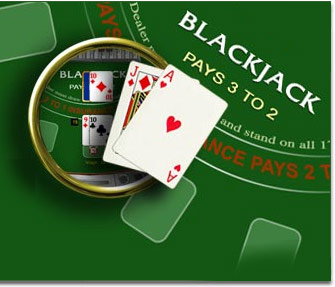Ken Uston - Blackjack Player
Blackjack Author and Player Ken Uston
A Profile of Ken Uston
Considered by many to be the most famous blackjack player of all time, the man known as "The Master of Blackjack" was as controversial as he was colorful. Born January 12th, 1935, Ken was a certified mathematics genius with an IQ of 169. He attended Yale University at the age of 16 and later went on to receive his MBA from Harvard.
Ken then started his ascension of the corporate ladder, eventually becoming the senior vice-president of the Pacific Stock Exchange in San Francisco, California.
Ken Uston and Al Francesco
Along the way, Ken became fascinated with blackjack, which no doubt appealed to his mathematically-oriented mind. In 1973, a woman he was dating recommended that he should meet another man she was involved in. That man turned out to be the father of the team play concept, Al Francesco.
Ken called him up and the two men became friends. Although he was not a winning player at the time, Al taught him to count cards and agreed to give him a spot on his team. So Ken quit his lucrative job and looked to make his mark in the world of professional gambling.
Ken started off as a spotter for the other team members, but was eventually moved to the position of Big Player after a fellow teammate was discovered to be ripping off the team.
Ironically, Ken's time under Al Francesco was less than impressive. While he didn't lose money, he always found himself just breaking even.
Suing Atlantic City
When gambling was legalized in Atlantic City in 1976, Ken moved there and set up shop, although he soon found himself barred from most casinos. He retaliated by filing a lawsuit against Resorts International, claiming that casinos did not have the right to bar skilled players. In a surprising turn of events, the New Jersey State Supreme Court ruled in favor of Ken.
To this day, Atlantic City casinos are not allowed to bar card counters. But although it was a victory for the little man, many blackjack players argue that Uston's victory actually worsened blackjack conditions in Atlantic City, because casinos countered the ruling by adding decks, moving up the shuffle point, and taking other measures to decrease the skilled player's potential advantage.
Ken Uston, Blackjack Author
In 1977, Uston made a huge splash with the publication of The Big Player, which he co-authored with Roger Rapaport. In the book, Uston exposed the secrets of Al Francesco's big player teams, which had largely been unknown to casinos at that time.
Many in the gambling community turned against Ken as a result, and the publication of the book created a rift between him and Al which took years to repair. But the book also changed the ways which professionals looked at and attached the game of blackjack.
Three of the most successful international blackjack teams—the Tommy Hyland team, the MIT blackjack team, and the Czech team—were all started in 1978, the year after Uston's book was published.
Ken went on to write Two Books on Blackjack (1979), Million Dollar Blackjack (1981), and Ken Uston on Blackjack (1986).
In the 1980s, Uston wrote several books about video games, including Mastering PAC-MAN and Ken Uston's Guide to Buying and Beating the Home Video Games.
Ken Uston's Legacy
Over the course of his career, Ken and his teams took the casinos for millions. And all the while, Ken was wearing disguises, being chased by casino goons (and once having several bones in his face broken), and generally living a life filled with women, booze, and money.
His was a personality on a grand scale, who legally challenged the casino industry in the courts of both New Jersey and Nevada. His blackjack career spanned two decades of competition at the highest levels, and included card counting, big player teams, hole card techniques, and concealed computer play.
On September 19th, 1987, in his rented vacation apartment in Paris, France, Ken Uston was found dead of an apparent heart attack. French authorities reported that no foul play was suspected, and his death was attributed to natural causes. Rumors, however, persisted that Ken had died of a heroin overdose.
His friend and business manager, Jerry Fuerle, was even quoted in the Las Vegas Review-Journal as commenting, "His lifestyle just caught up with him."
No autopsy was ever performed, and, after his body was cremated, his ashes were flown back to the U.S. At the time of his death, Ken was working as a computer consultant for the Kuwaiti government and writing a book about his experiences in the Middle-East.
In 2003, in recognition of his contributions to the world of blackjack, Ken was inducted as one of the inaugural members of the Blackjack Hall of Fame. And although he may be gone, his passion and innovative techniques live on in the hearts and minds of generations of blackjack players.
More Blackjack Players: Stanford Wong - Hollywood Dave Stann - Sam Vaughn - Edward Thorp - Cathy Hulbert - Michael Konik - Keith Taft - Anthony Curtis - Peter Griffin - Ken Uston - Richard Munchkin - Ken Einiger - Tommy Hyland - Al Francesco - Eleanore Dumont - Ken Smith - Lawrence Revere - Steve Forte - Barry Meadow - Brian Zembic - Big Chuck Gorson - Erica Schoenberg - James Grosjean - Max Rubin - Henry Tamburin - Russ Hamilton - Jimmy Pine - Joanna Wlodawer - Joe Pane - Kevin Blackwood - Blackjack Hall of Fame - MIT Blackjack Team


 Cherry Jackpot
Cherry Jackpot


